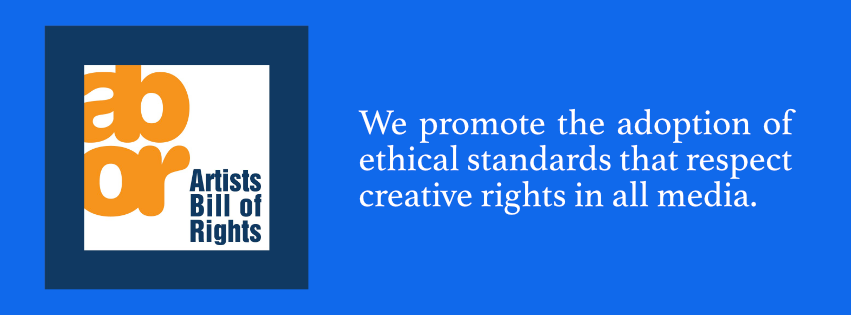Read letters artists have already submitted via a notice posted by the Illustrators' Partnership of America (found near the end of their notice).
Comments are due on or before THURSDAY: July 23, 2015
Everyone, US or not, can submit their letters online here.
(Note: If you are a non-U.S. citizen, be sure to click the "state" dropdown field in the online form, scroll to the bottom and select "Non-U.S.A. Location ". If you continue to have trouble, email: Catherine Rowland, )
Read the Copyright Office Notice of Inquiry.
Read the 2015 Orphan Works and Mass Digitization Report.
Everything You Know About Copyright Is About To Change - Brad Holland
Please write the Copyright Office
The proper heading for your comments should be:
Maria Pallante
Register of Copyrights
U.S. Copyright Office
101 Independence Ave. S.E.
Washington, DC 20559-6000
with this subject line and greeting:
RE: Notice of Inquiry, Copyright Office, Library of Congress Copyright Protection for Certain Visual Works (Docket No. 2015-01)
Dear Ms. Pallante & U.S. Copyright Office Staff:
(The following via the Illustrators' Partnership Artists' Alert)
Because of our past opposition to orphan works legislation, the Copyright Office has issued a special Notice of Inquiry on Visual Works. In it, they acknowledge that visual artists face special problems in the marketplace and they've asked artists to respond to five questions:
1. What are the most significant challenges related to monetizing and/or licensing photographs, graphic artworks, and/or illustrations?
2. What are the most significant enforcement challenges for photographers, graphic artists, and/or illustrators?
3. What are the most significant registration challenges for photographers, graphic artists, and/or illustrators?
4. What are the most significant challenges or frustrations for those who wish to make legal use of photographs, graphic art works, and/or illustrations?
5. What other issues or challenges should the Office be aware of regarding photographs, graphic artworks, and/or illustrations under the Copyright Act?
Read the IPA's full alert, including artists' letters that have been submitted, to help write one of your own.
For basic info about sections of the Copyright Office's report you, as a visual artist, should pay attention to, see this.
Artists' Bill of Rights "quick read" regarding commercialization of orphan works
Commercial Use:
Good Faith buyers already know where to search for images they need. Commercializing orphan works will be a time-consuming process for both parties, yielding confusion and distress with little or no net benefit.
- The assumption that everyone wants to commercialize their visual work is presumptious. Section 106 of the copyright code (Exclusive rights in copyrighted works) also means the right to remain "undiscovered" without being burdened by an orphan works scheme that requires constant monitoring (the Office's Notice of Use proposal).
- The Internet was not originally conceived as the vast, complex marketplace it is today, it was developed to share information via text. Until the problem of online durable authorship (stripped metadata) is solved, notions of commercialization should not be entertained.
- With regard to maintaining authorship and preserving the rights granted in Section 106, the Internet is a flawed publication model for commercial activity. If we address these structural problems, we will have solved a major source of orphan works.
- Millions of new images are posted online daily. Most, if not all, are orphaned by default, or certainly after one "share". Does the Office wish to expose family photos to commercialization? Must every internet user search the Notice of Use database to discover they've been infringed?
- Must professional artists who have granted exclusive use of a work diligently search the Notice of Use regularly so as not to be liable for breach of contract to their client?
In conclusion, let artists decide by what means they wish to be discovered and if they wish their work monetized, or not. It should be their choice, by default, to remain quiet, if they choose. The Office should not assume artists are in need of extra marketing assistance - the economy will not go into recession because of it.
The additional burdens proposed by the Office - registration in databases, searching Notices of Use, and negotiating in a Small Claims court - are not desireable, and would actually constitute a net loss of income for artists.

